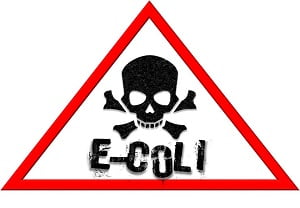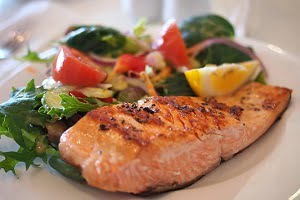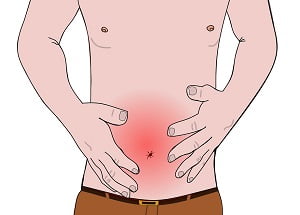How Can You Prevent Food Poisoning?
- Updated on: Jul 1, 2024
- 4 min Read
- Published on Nov 30, 2020

Food poisoning is a common condition that occurs when certain microorganisms or germs contaminate the food and drinking water. This can lead to many symptoms, such as diarrhea, nausea, vomiting, abdominal cramps, and fever.
How Food Poisoning Can Be Prevented?
Sometimes, food poisoning may be mild and do not require any treatment. However, in some cases, it may be so severe that you may require proper medical treatment. Some people who are at major risk of food poisonings, such as pregnant women and older people, may get severely affected by this condition leading to many health problems. If you have someone in any of the above-mentioned risk groups, you should be extra careful regarding their dietary habits because they can quickly catch the infection. Following are some of the measures that can be taken to avoid food poisoning:
Check Food Quality
Meat and Poultry
Foods from animals are the most common food poisoning sources; therefore, one should be careful while handling and preparing these foods. Following measures can be taken to avoid the food poisoning caused by animal foods:
- Avoid eating raw or spoiled meat.
- When buying meat and poultry and other grocery items, keep them in separate plastic bags to avoid the contamination of other grocery items from the juices released by raw meat or poultry.
- For avoiding contamination, use separate cutting boards and knives while preparing the poultry and meat.
- Always cook the meat and poultry items at an appropriate temperature to kill the germs present.
Eggs and Dairy
Eggs and other dairy products are also common sources of food poisoning. Following are some of the tips for avoiding food poisoning:
- Always check the expiry date of eggs before purchasing and consuming.
- Do not consume unpasteurized milk and its products. Pasteurized foods are heated to kill the bacteria before being sold, so always prefer pasteurized milk products.
- You should avoid soft cheese such as feta, camembert, and Mexican-style cheese because they may be contaminated by food poisoning, causing bacteria. Instead, consume hard cheese, cream cheese, and cottage cheese because they are safe to eat.
Vegetables
Green leafy vegetables and some sprouts can also be the source of food poisoning. Leafy vegetables such as lettuce, cabbage can cause food poisoning when eaten raw. Sprouts such as clover, alfalfa, and mung usually require a warm temperature to grow, and these conditions are perfect for the growth of bacteria. To avoid the food poisoning caused by these food items following measures can be taken:
- Cook the sprouts and other vegetables properly.
- People with a pregnant woman or people who have a weak immune system should avoid raw sprouts.
- Some other food-related tips to prevent food poisoning may include:
- Keep eggs, meats, poultry, and seafood under refrigeration when not in use.
- Wash your vegetables and fruits properly before eating.
- Always consume pasteurized products.
- Eat food immediately after cooking and discard the leftover food as it may get contaminated with bacteria.
- Preserve cold foods at a temperature of 40?F or less.
- Consume juices that are pasteurized.
- Ensure Cleaning and Proper Cooking
- Wash your hands before preparing the food.
- Prepare the food at a proper temperature.
- Clean the cutting boards and knives with soap and warm water after handling the raw meat, poultry, and eggs.
- Wash your dishcloths and tea towels regularly and allow them to dry before use.
- Do not thaw the foods at room temperature. You can thaw your foods in the refrigerator and use them promptly.
- Cook the foods at the right temperature to avoid bacterial growth. You can use a clean thermometer to check the inner temperature of your cooked foods.
- You should cook your foods until they are steaming hot, mostly leftover foods and processed foods such as hot dogs.
Here are some specifications on cooking temperatures:
- You can cook roasts and steaks at 145? F.
- Poultry foods such as chicken and turkey should be cooked at 165?F.
- Beef, pork, and lamb should be cooked at 145?F.
Dine Out with Caution
Be very careful while dining in a restaurant and avoid having undercooked food. Also, ensure that the plates and other utensils in which the food is served are clean. Following are some of the measures that can be taken while having outside food:
- Check the inspection scores of the places where you eat.
- You should look around whether the restaurant is clean or not.
- If you take home leftovers, refrigerate them within 2 hours to avoid bacterial growth in the food.
- Eating While Travelling
- You need to be very careful about your eating while you are on travel. Following tips can help in avoiding food poisoning while traveling:
- Consume hot, served foods.
- You should prefer dry and packaged fruits and avoid moist foods because most germs that cause food poisoning survive in moist foods. Therefore, consuming dry foods such as bread and factory sealed food products are usually a safe bet.
- Drink only hot tea or coffee.
- Drink only carbonated drinks that are properly sealed.
Read Foods That Can Cause Food Poisoning
Other Tips for Avoiding Food Poisoning
- Wash your hands properly with soap and water while handling your pets like turtles, cats, and dogs.
- Clean your hands properly if you touch animal or pet feces.
- Avoid preparing food for other individuals, especially those with weak immune systems, if you are yourself suffering from food poisoning and related symptoms like diarrhea, vomiting, etc.
- Clean your hands after properly before and after eating the food.
- Wash your hands immediately after coughing or sneezing.
FAQs
Can Food Poisoning Be Instant?
Food poisoning symptoms such as diarrhea, vomiting, nausea, and fever may begin after a few hours to weeks after eating the contaminated food. The time taken for the apparent symptoms of food poisoning depends on the causative microorganism. But in mild cases, it has been seen that symptoms usually appear within 24 hours after eating food and last for more than 24 hours.
Can Eggs Cause Food Poisoning?
Yes, eggs can cause food poisoning. Eggs carry Salmonella bacteria that can contaminate their shell as well as inside of the egg. It tends to develop Salmonella food poisoning, which causes symptoms such as diarrhea, vomiting, and headache. These symptoms usually begin within 12-72 days after ingesting food and last for 14-7 days.
Does Cooking Prevent Food Poisoning?
Yes, if food is cooked properly at the right temperature, it can prevent food poisoning. You should wash your hands with soap and water before cooking. Cooking meat, poultry, and eggs at the right temperature (140? F or above) allows the killing of microorganisms present in the foods and prevent food poisoning.
Can I Take Anti Nausea Medicine With Food Poisoning?
You can take anti-nausea medication after consulting with your doctor. Your doctor may suggest the following medicines:
- Bismuth subsalicylate (Pepto-Bismol)
- Dimenhydrinate
- Emetrol
- Meclizine hydrochloride
These medicines can have their side effects and can worsen your food poisoning symptoms if taken without proper consultation.












